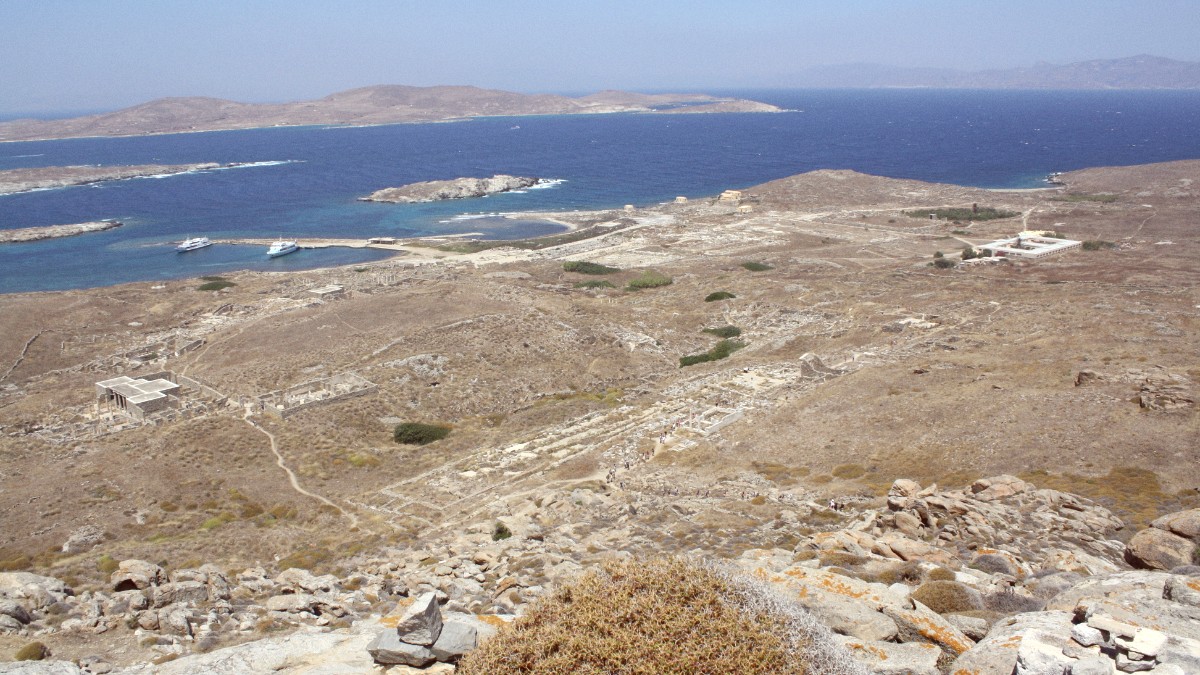
Northeastern Aegean Islands, Greece
The island experiences a Mediterranean climate, characterized by hot, dry summers and mild, wet winters.
Temperatures during spring (April - May) typically range from 15-25°C (59-77°F). Precipitation remains low, and the island blooms with wildflowers. This period presents pleasant weather, making it ideal for hiking and sightseeing.
Summers are typically hot and dry, with very low humidity. The Meltemi winds, while providing relief from the heat, can make the sea choppy, potentially impacting ferry schedules.
Pay attention to local forecasts if you plan island hopping or water sports. Wildfires can be a concern during very dry summer periods. Always exercise caution with fire and follow local warnings.
July-August
Hottest weather, all tourist services open, lively nightlife.
Crowded beaches, higher prices, intense heat.
May-June, Sept-Oct
Pleasant weather, fewer crowds, lower prices, good for activities.
Some services may have reduced hours (early May, late Oct).
Nov-March
Lowest prices, authentic local experience, lush scenery.
Many tourist businesses closed, limited transport, cooler weather.
Beach & Swimming: Plan your visit for June to September. The sea warms up consistently during this period, offering comfortable swimming conditions.
Hiking & Cycling: April, May, late September, and October present the best temperatures for these activities. Milder weather makes long walks or rides enjoyable.
Visit historical sites in April, May, June, September, or October.
September and October align with the grape harvest season.
Check local calendars for events, especially in summer.
Any season for quiet getaways; peak summer for beach life.
Visit traditional villages and mountain paths in shoulder seasons.
Greece is part of the Schengen Area, a group of 27 European countries that have abolished passport and other types of border control at their mutual borders. Once you enter the Schengen Area, you can travel freely between member countries without further immigration checks. Your entry requirements for Samos depend on your nationality.
Citizens from US, Canadian, UK, Australian, New Zealand countries can enter Greece visa-free for tourism or business purposes. Your stay cannot exceed 90 days within any 180-day period.
Travelers from other countries may require a Schengen visa. If you need a visa, begin the application process well in advance of your trip.
Always check the latest visa requirements with the Greek embassy or consulate in your country before your trip, as regulations can change.
The currency used in Samos, and throughout Greece, is the Euro (€, EUR). ATMs are widely available in major towns. Credit and debit cards find acceptance in most hotels, restaurants, and larger shops. Carry some cash for convenience, especially at smaller tavernas or markets.
| Travel Style | Accommodation | Food |
|---|---|---|
| Budget Traveler | €30-€60 (basic room, guesthouse) | €20-€35 (local tavernas, street food, self-catering) |
| Mid-Range Traveler | €70-€150 (mid-range hotel, apartment) | €40-€70 (mid-range restaurants, daily coffee) |
| Luxury Traveler | €180+ (boutique hotel, resort) | €80+ (fine dining, extensive drinks) |
Ensure you are up to date on standard vaccinations (MMR, DTP, Polio).
Often recommended for most travelers, especially those venturing outside major tourist resorts.
Consider if eating street food, traveling extensively in rural areas, or interacting with animals.
Mainly related to climate and environment.
Sunburn & Dehydration: Use High-SPF sunscreen, carry a Wide-brimmed hat, wear Sunglasses. Drink plenty of water (2-3 liters/day).
Insect Bites: Mosquitoes are present. Use an effective Insect repellent with Picaridin or DEET.
Sea Urchins/Stonefish: Wear Water shoes in rocky areas or on pebble beaches.
Samos General Hospital in Vathy. Smaller health centers in Karlovasi and Pythagoreio.
Easily found in towns and villages (green cross sign). Many pharmacists speak English.
Dial 112 for all emergencies (Police, Ambulance, Fire Department).
Samos has a very low crime rate, ranking among the safer Greek islands. Petty theft, like pickpocketing, can occur in crowded tourist areas, but it remains rare.
Tap water in major towns and tourist areas on Samos is generally safe to drink. Some visitors prefer Bottled water due to taste differences or to avoid minor stomach upsets.
Generally safe in major towns; bottled water as alternative.
Standards adhere to European Union regulations and are generally high.
Eat at reputable establishments and choose freshly prepared food.